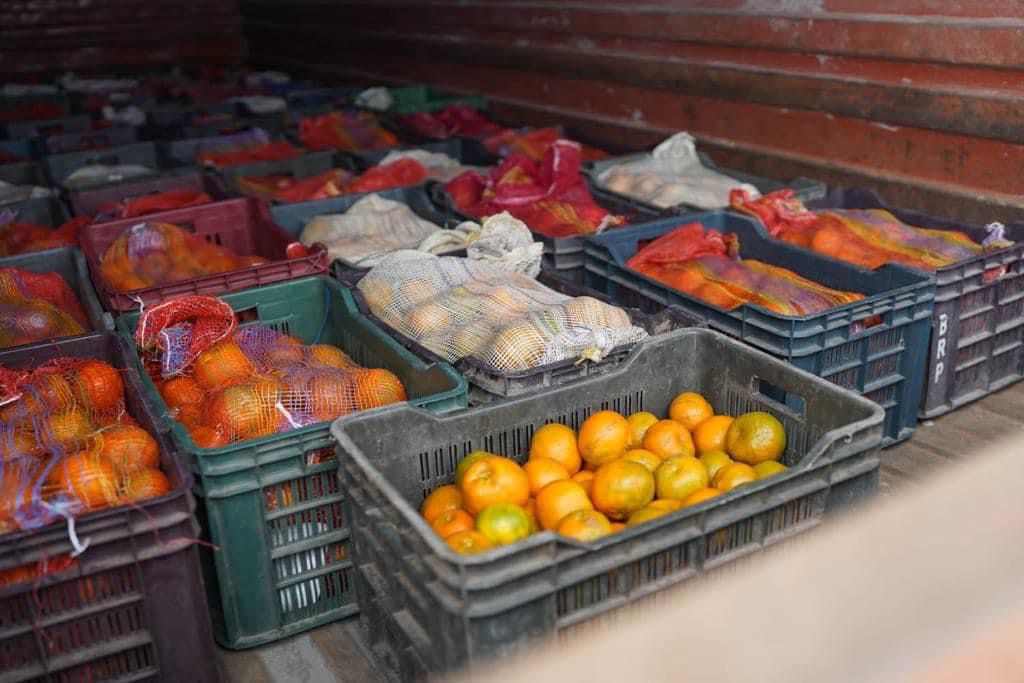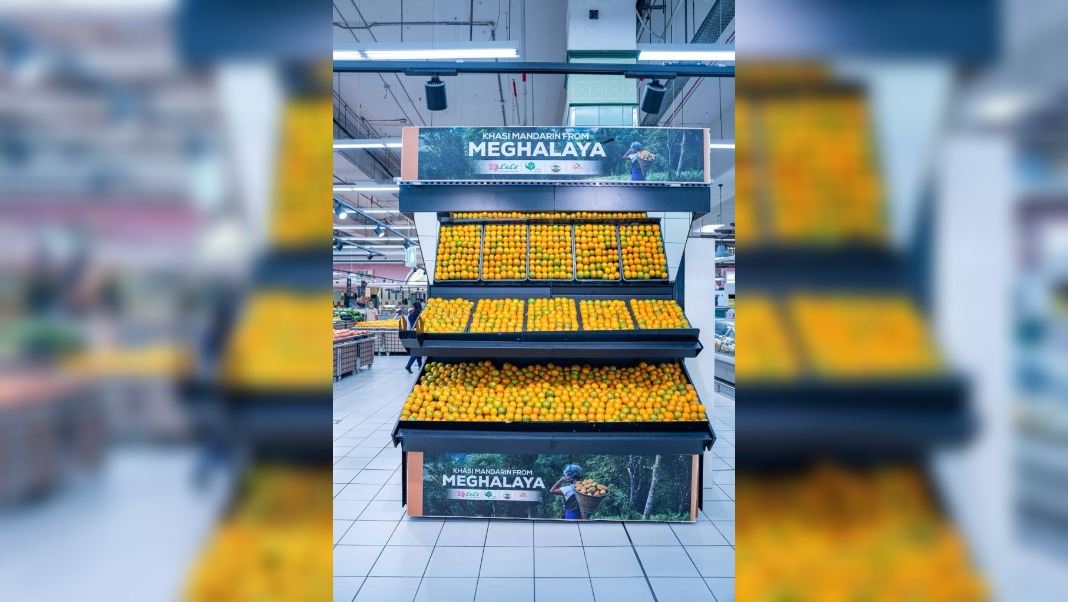Shillong, Dec 17: High in the misty hills of Meghalaya, the Khasi mandarin (Citrus reticulata Blanco) thrives as a vibrant symbol of the region’s horticultural legacy. Renowned for its sweet-tangy flavour and striking hue, this economically vital fruit supports the livelihoods of local communities and bolsters the state’s agricultural economy.
A study by researchers from the College of Post Graduate Studies in Agricultural Sciences, Umiam, Meghalaya, has unveiled a juicy revelation: Khasi mandarins grown at higher altitudes are not only sweeter but also juicier than their lowland counterparts.
The research sheds light on how altitude influences the morphological, biochemical, and genetic diversity of this cherished fruit. While past studies suggested that elevation affects traits like size, sugar content, and acidity, this investigation goes further by exploring the genetic underpinnings of these changes. The ultimate goal? To identify elite genotypes for large-scale cultivation and develop production strategies tailored to different altitudinal zones.
What Makes High-Altitude Mandarins Juicier?
The study found that Khasi mandarins from higher elevations have thinner rinds and higher juice content. Cooler temperatures and prolonged maturation at these heights slow down respiration, allowing sugars and organic acids to accumulate more effectively. This natural process results in fruits that are denser, sweeter, and juicier than those grown in the lowlands.

Researchers collected samples from nine distinct altitudinal zones in Meghalaya, gathering fruit and leaf samples from five high-performing trees in each location. This robust approach ensured a comprehensive analysis of how altitude affects the fruit’s quality and genetic diversity.
Morphological and Biochemical Analysis
The research team conducted detailed morphological evaluations, documenting traits like leaf size, fruit weight, rind thickness, and fruit diameter. These measurements followed the guidelines set by the International Plant Genetic Resources Institute (IPGRI), providing a standardized framework for altitude-driven variation in fruit characteristics.
On the biochemical front, the fruits were tested for total soluble solids (TSS), titratable acidity (TA), sugar content, and ascorbic acid (vitamin C) levels. These factors are crucial determinants of sweetness, acidity, and nutritional value — key drivers of consumer preference and market demand.
Decoding the Genetics
To uncover the genetic basis for altitude-driven changes, the researchers extracted DNA from the leaf samples and analyzed it using 40 simple sequence repeat (SSR) markers known for their polymorphic properties in citrus species. Eleven of these markers displayed clear genetic differences among the sampled genotypes.
Using cluster analysis and Analysis of Molecular Variance (AMOVA), the team quantified genetic variability across the altitudinal zones. This analysis provided critical insights into how altitude shapes the genetic diversity of Khasi mandarins, which in turn affects their physical and biochemical properties.
Implications for Conservation
The study’s integrated findings — spanning morphological, biochemical, and genetic dimensions — offer valuable guidance for breeding programs, cultivar selection, and conservation strategies for the Khasi mandarin. By identifying altitude-specific elite genotypes, the research paves the way for improved production strategies that can be adapted to Meghalaya’s diverse altitudinal landscape.
These insights hold significant promise for local farmers, agribusinesses, and policy-makers, offering a path to optimize yields, enhance fruit quality, and support the sustainable growth of the Khasi mandarin industry. As Meghalaya’s highland mandarins continue to capture the taste buds of consumers far and wide, their journey from misty hills to market shelves is a testament to the sweet rewards of science-driven cultivation.
Read: Lieutenant Nigel Marak: Upholding family legacy of valour and service to the nation
WATCH:
Find latest news from every corner of Northeast India at hubnetwork.in, your online source for breaking news, video coverage.
Also, Follow us on-
Twitter-twitter.com/nemediahub
Youtube channel- www.youtube.com/@NortheastMediaHub2020
Instagram- www.instagram.com/ne_media_hub
Download our app from playstore – Northeast Media Hub





